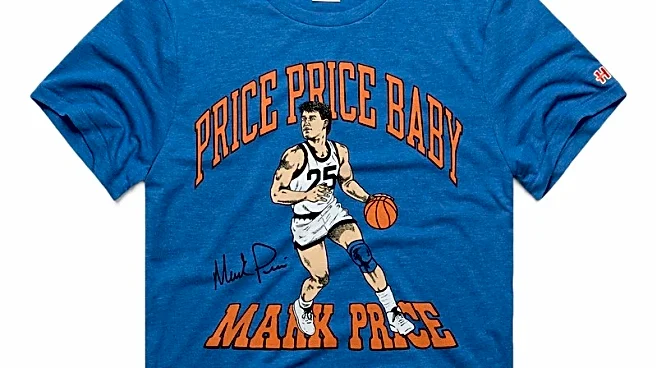What is the story about?
What's Happening?
The University of Delaware is set to debut its first NCAA Division I women's hockey team, with Katelynn Charlton as one of its key players. Charlton, a freshman forward, overcame a severe ACL injury sustained during high school lacrosse to join the team. She was one of four players selected from a women's hockey camp held at the university in August 2024. The team will play its first regular-season game against Long Island University on September 26 at Rust Ice Arena in Newark, Delaware. The team is part of the Atlantic Hockey America conference, which includes other universities such as Penn State and Syracuse.
Why It's Important?
The establishment of Delaware's first NCAA Division I women's hockey team marks a significant milestone in the university's sports program and contributes to the growth of women's hockey in the U.S. This development provides new opportunities for female athletes and promotes gender equality in collegiate sports. The inclusion of players like Charlton, who have overcome personal challenges, highlights the resilience and dedication of athletes. The team's debut could inspire other institutions to invest in women's sports, fostering a more inclusive environment in athletics.
What's Next?
The University of Delaware's women's hockey team will begin its inaugural season, facing Long Island University in their first game. As the team progresses, it will compete against other members of the Atlantic Hockey America conference. The performance of the team and its players, including Charlton, will be closely watched as they navigate their first season. Success could lead to increased support and recognition for women's hockey at the university and beyond.
Beyond the Headlines
The launch of Delaware's women's hockey team may influence broader cultural shifts in sports, encouraging more young women to pursue hockey and other traditionally male-dominated sports. It also raises questions about the allocation of resources and support for women's sports programs compared to their male counterparts. The team's success could challenge existing norms and pave the way for more equitable treatment of female athletes.
















